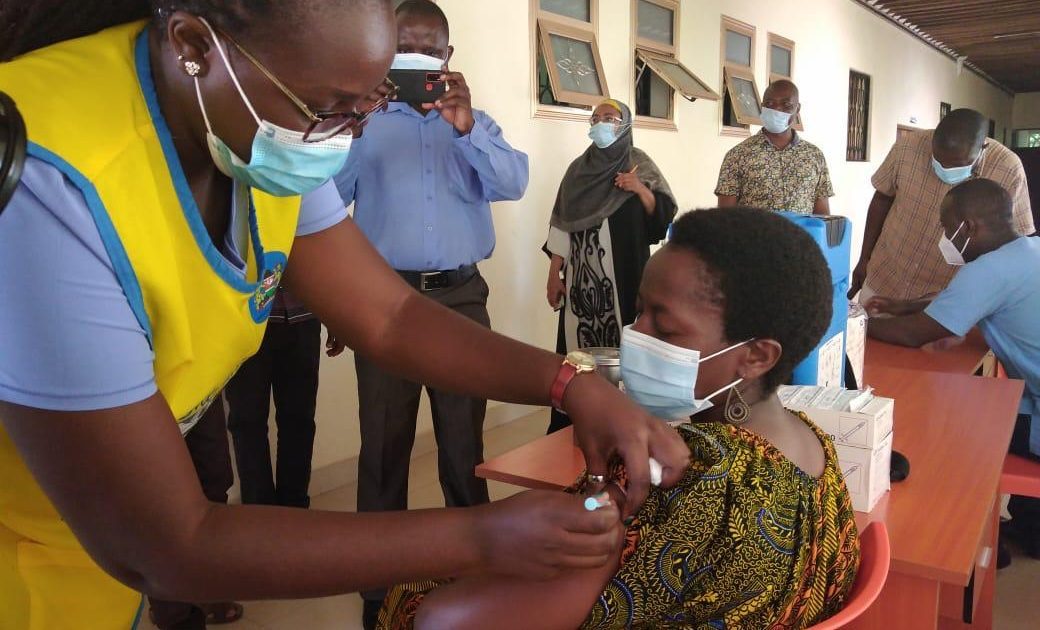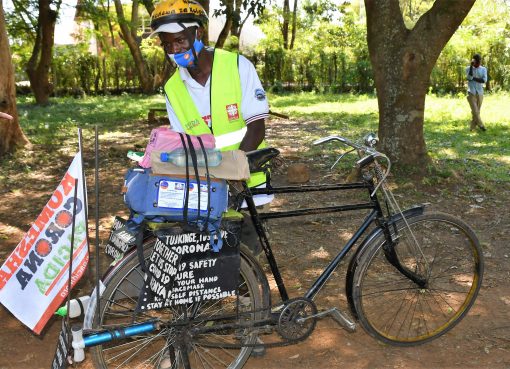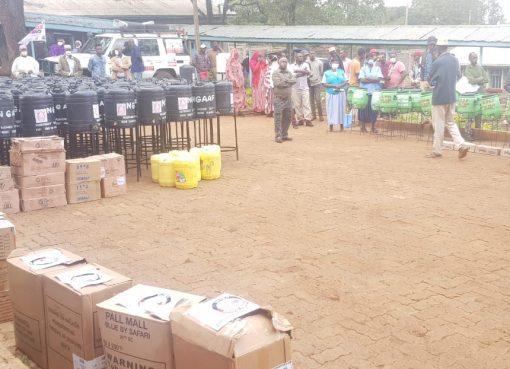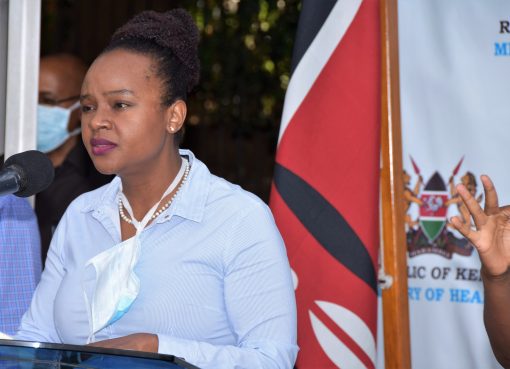Low levels of vaccinations in Africa have stirred stakeholders in the health sector to take drastic measures aimed at reversing the negative trend.
This comes hot on the heels of COVID – 19 pandemic that devastated the entire globe with far reaching consequences including deaths.
In light of the foregoing, African nations have been called upon to stand together and pool resources now that the international community has set aside US$ 2 billion (Sh. 248 billion) to facilitate any country in the continent to access the COVID – 19 vaccines.
Dr Lul Riek, the Africa Centers for Disease Control (CDC) Regional Director told the forum for journalists drawn from Kenya, Uganda, Zimbabwe and other nations this morning that Africa dragged behind in accessing the lifesaving COVID – 19 as well as monkey pox vaccines.
Dr Riek appealed for a strong African CDC able to deliver excellent results through a revamped national Public Health and Research initiatives while roping in respective Universities in such important undertakings.
He was speaking online through a forum organized by the Media for Environment, Science, Health and Agriculture (MESHA) while calling upon Africa Union (AU) member States to prepare better context of health security.
“Africa CDC is deeply concerned with over 100 Health Emergencies reported annually on the continent; ranging from disease outbreaks, manmade conflicts, climate related droughts, floods, hurricanes, and cyclones increasing in number and severity,” he stated.
Dr Riek said before the emergence of COVID – 19, the top five causes of epidemics were cholera, measles, yellow fever, meningitis and influenza, most of which are preventable by strengthening routine immunization.
He pointed out that between 2014 and 2016, Africa witnessed the largest Ebola outbreak since the discovery of the virus in 1970.
Reports by Africa CDC indicate a total of 12, 059, 143 people COVID – 19 cases and over 255, 699 deaths across the African continent due to the pandemic as at September 20, 2022. He singled out the other pandemics as; West Nile fever, lassa fever, rabies, measles, cholera, monkey-pox, yellow fever, polio, and Rift Valley fever.
“This week, Uganda reported an outbreak of Ebola virus which has been attributed largely to the interface between human, animals and environment which have increased tremendously over the decades,” explained the Regional Director.
Dr Riek said that during the Africa’s vaccine manufacturing conference held in Zambia in April, 2021, about 40, 000 people participated online from various countries across the world. During the forum, AU set a goal to produce 60 per cent of the vaccines administered in Africa.
“The goal is to increase vaccine manufacturing on the African continent to meet 60 per cent of the demand by 2040 and mandated the partnerships for African vaccine manufacturing to develop a Framework for Action to execute this,” Dr Riek explained.
Citing the Abuja Declaration, Dr Riek appealed to respective African Member countries to ensure they set aside 15 per cent of their National Budget to the Health sector.
“Out of the 55 African countries, only five of them have met the requirement,” he added.
Whereas we have a population of 1.3 billion in Africa, only about 23 per cent has so far been vaccinated against the COVID – 19 pandemic, he said, pointing out that the majority of those not captured by the vaccination program are the youth.
The Regional Director urged the media to use their unique ability to sensitize the youth to stop the misplaced myth that they have strong protection because they are still young and so can fight off the disease.
If we can hit 70 per cent, that will be commendable achievement. The question still remains whether Africa is well prepared for the next round of epidemic similar to the magnitude of the COVID – 19, he posed.
Dr Riek reassured the public that Africa CDC is committed to working collaboratively with all partners in supporting the AU Member states to build a resilient health security and make Africa safe in line with the Agenda 2063 aspirations.
On her part, Carthy Karottu who is the Africa Regional Communications & Advocacy Officer with WACI Health Organization called for Equity after the COVID – 19 pandemic exacerbated inequalities thus made it more difficult for the vulnerable communities to access healthcare.
karottu called for inclusive governance where all stakeholders including the civil society are all involved as equal partners all the way from the start.
She also emphasized the need for international solidarity where organisations like WHO, EU Commission, France, Bill & Melinda Gates Foundation among others respond to the health security needs as proposed by the G20 leaders in March, 2020.
“The G20 and its entire membership have pledged US$ 10 billion (Sh.1.23 trillion) a proposal to be implemented over the next 5 years translating to US$ 50 billion (Sh. 6.15 billion) for future preparedness for COVID – 19 or any other pandemic,” she revealed.
African leaders should also be included at the Global Financing table as equal partners if we hope to achieve equity unlike past scenarios where they were sidelined in important decision making by the powerful body, she added.
By Joseph Ouma





